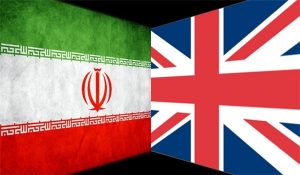The British Conservative Government’s Political Elite, and the European Union: Safeguarding British Interests (With Special Reference to: 2010 – 2016)
Those who were elected to decision-making positions in the state were to represent the interests of those who elected them. Politics was to be based on an open and critical dialogue in the ‘public sphere’, where public opinion could be formed and decisions arrived at. Parliament and parliamentary elections were at the centre of this public sphere. Between the 1840’s to the 1860’s, a period of confrontation among elitist and electoral principles of political representation took place.
However, the outcome was not just the replacement of elitism by electoralism. It was that the landed class had to come to a compromise with the manufacturing class, and the structure of political representation reflected the nature of this compromise.
Within this format of political representation, the rival party groups of Whigs and Tories competed with one another for the support of privileged classes. The Tories depended on most landowners and farmers, together with support from the colonial and shipping interests and those attached to the established Church “In short, the Tories were supported by all those elements which considered it necessary to safeguard their interests against the necessary results of modern manufacturing industry”17. The Whigs were also drawn from the landed class, but attempted to articulate the interests of the manufacturers and commercial classes. “The emergence of electoralism involved an important transformation of the political system as the mode of political representation gradually came to reflect the changing balance of power among the privileged classes. But the old elitist pattern was modified rather than destroyed. The landed class remained an important social force and endeavoured to continue its strategy of compromise with the manufacturing class. The patrician oligarchy adapted to the party system by containing it within the shell of the elite mode of representation.”18 The result was that since the last third of the nineteenth century an ‘establishment’ based on a more formal method of operation has been seen in Britain.
Power and Interests of the British Elite
The necessary, if not sufficient, basis of the power of the dominant, elite group or the ‘establishment’ is the strategic control of the enterprises which form the oligopoly sector of the British economy. This sector of ‘big business’ consists of the one thousand largest firms in the economy, these firms dominating the various markets in which they operate. The structural basis of the petit bourgeoisies is distinct from but dependent on this big business sector.
Pages: 1 2 3 4 5 6 7 8 9 10 11 12 13 14 15 16 17 18 19 20 21 22



